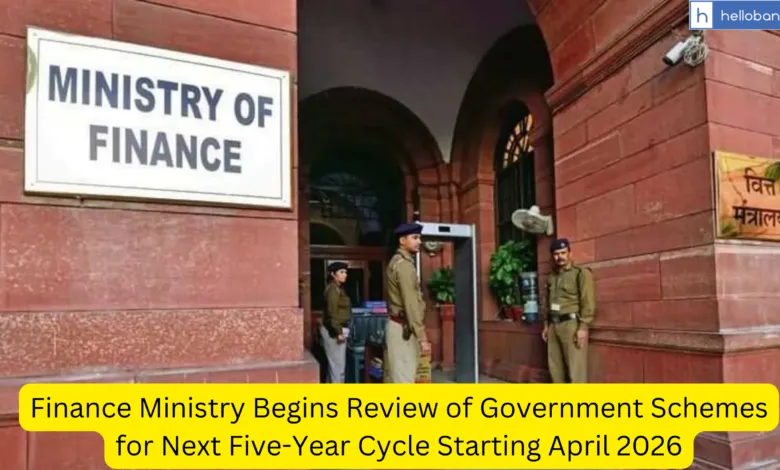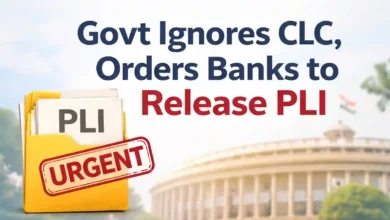Finance Ministry Begins Review of Government Schemes for Next Five-Year Cycle Starting April 2026

The Department of Expenditure under the Ministry of Finance organized a half-day workshop with Secretaries of various central government ministries and departments. The main agenda was to start the process of reviewing and approving government-funded schemes—both Centrally Sponsored Schemes (CSSs) and Central Sector Schemes (CSs)—for their continuation in the next five-year period, starting April 1, 2026. This cycle will align with the recommendations of the upcoming 16th Finance Commission.
Key Attendees and Leadership
The workshop was chaired by Dr. T.V. Somanathan, the Cabinet Secretary. Other key participants included Shri Ajay Seth, Finance Secretary and Secretary of the Department of Economic Affairs, and Shri Vumlunmang Vualnam, Secretary of the Department of Expenditure, along with Secretaries from various ministries and senior officers such as Financial Advisors.
The Government has a policy, announced in the 2016 Union Budget, that every scheme must have:
- A sunset date (end date)
- A third-party evaluation to assess its effectiveness
Only those schemes that pass the evaluation will be approved for continuation. The goal is to improve public spending by removing outdated or ineffective schemes, merging similar ones, and redesigning others to achieve better results.
Cabinet Secretary’s Message
Dr. Somanathan urged the Secretaries to:
- Take the evaluation results seriously
- Redesign or end schemes that are not working
- Combine overlapping schemes
- Focus on outcomes and better use of public funds
He emphasized that this will ensure efficient use of limited government resources and better results for citizens.
Financial Planning & Resource Allocation
The Department of Expenditure shared a broad overview of the funding expected for each ministry. There are currently 54 CSSs and 260 CSs that will end on March 31, 2026, and need to be reviewed and re-approved. These schemes cover areas like:
- Health
- Education
- Women and Child Welfare
- Tribal Welfare
- Agriculture
- Infrastructure
- Water and Sanitation
- Environment and Science
The department also explained that past reviews helped the government increase capital investment, which now stands at ₹11.21 lakh crore in the Budget for 2025–26.
Focus on Better Implementation
Other government priorities discussed in the workshop include:
- Direct Benefit Transfer (DBT) using Aadhaar
- Linking schemes with reforms using conditional funding
- Avoiding duplication of efforts
- Ensuring “just-in-time” fund release (no parking of idle funds)
- Aligning schemes with the long-term national goals of India @100
How Schemes Are Funded
- Central Sector Schemes (CSs) are 100% funded by the Central Government.
- Centrally Sponsored Schemes (CSSs) are jointly funded by the Centre and States based on a fixed ratio.
The government aims to make both types of schemes more efficient, modern, and targeted so that they meet the real needs of the people.
Who Evaluates These Schemes?
- CSSs are evaluated by NITI Aayog’s Development Monitoring and Evaluation Office (DMEO).
- CSs are reviewed by independent third-party agencies appointed by the ministries.
This extensive exercise marks the beginning of a structured, data-driven process to shape the future of public welfare and development programs in India over the next five years.
